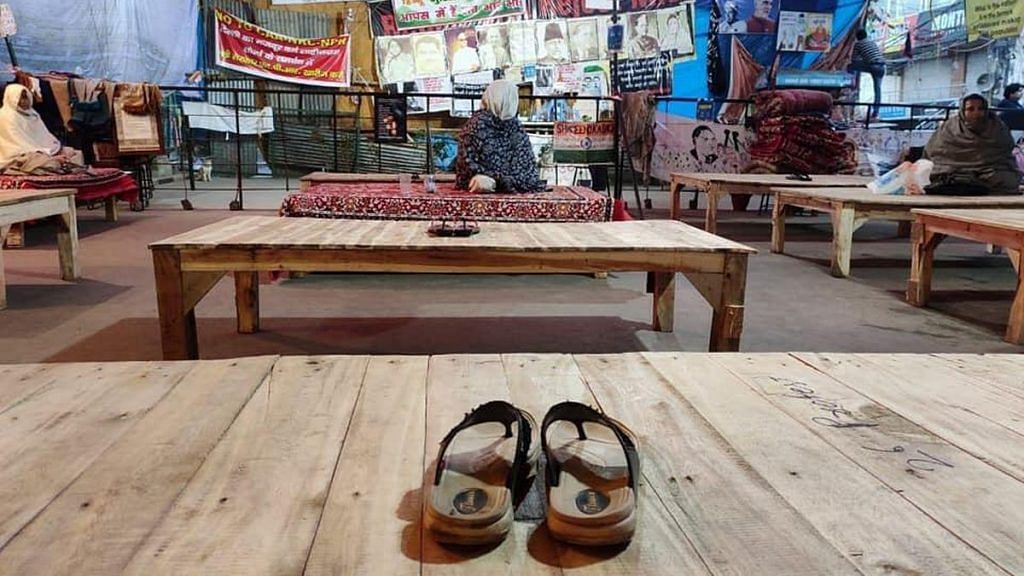New Delhi: A Delhi court Sunday granted bail to three men arrested last week for allegedly violating the lockdown by refusing to leave the Shaheen Bagh protest site.
The protest site was cleared last Tuesday, two days after Section 144 (unlawful assembly) was imposed in the national capital to prevent people from gathering in the wake of the coronavirus pandemic.
While granting bail to the three accused, Judge Jitendra Pratap Singh of the Saket Court Complex imposed certain conditions on them.
The trio was asked to not post any opinion relating to the Citizenship Amendment Act (CAA), National Population Register (NPR) or National Register of Citizens (NRC) on social media or on messenger services like WhatsApp. They were also barred from speaking to the media on these issues.
“The applicant shall not be posting any opinion regarding the Citizenship Amendment Act/National Population Register/National Register of Citizens on any social media, instant messengers nor will be giving any interview in this regard to print and electronic media,” stated the order.
Also read: Shaheen Bagh marks janata curfew by holding ‘symbolic protest’, petrol bomb hurled at it
Accused cited Covid-19 fear
Shan Mohammed, Syed Masood Ahmad and Syed Taseer Ahmed demanded bail, submitting that they had no criminal antecedents and that they were likely to contract Covid-19 if they were detained for long.
The Delhi government, meanwhile, had alleged that the accused had “disobeyed” the lockdown directions and had obstructed the police “from discharging their duties”.
“[The Delhi government submitted] that if released on bail the accused may mobilise large crowd at the protest site and the same might pose problems of law and order,” the court order noted.
The judge, however, allowed the bail applications with sureties and a bond for Rs 25,000 each.
‘Suitable conditions’ to avoid protests
The court noted that the accused have been charged with Section 353 (assault or criminal force to deter public servant from discharging his duty) of the Indian Penal Code as they refused to leave the Shaheen Bagh protest site.
It also took note of the Supreme Court and the Delhi High Court orders for de-congestion of overcrowded prisons.
It then granted them bail, while imposing “suitable conditions”, which it believed would allay the government’s apprehension that they would mobilise crowd at the protest site, leading to a law and order situation.
The accused trio have been barred from visiting the Shaheen Bagh protest site as well as from participating in any meeting/gathering of more than 5 people during the lockdown.
They have also been asked to mark their attendance at the Shaheen Bagh police station every Monday at 10 am during the period of investigation of the case.
Also read: Art installations at Shaheen Bagh, Jamia removed by Delhi Police, graffiti painted white
